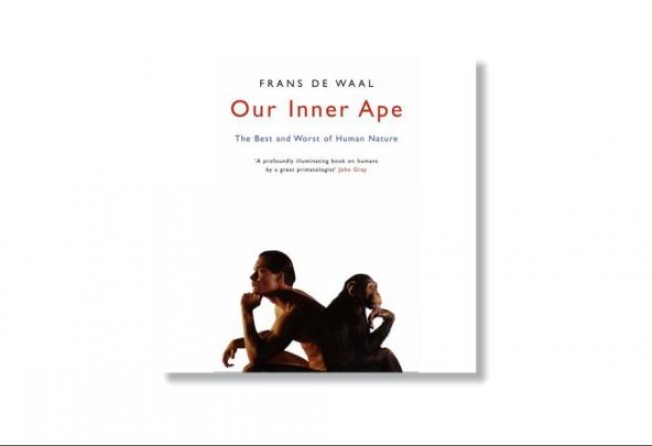Human desire for equality is innate, science suggests
Scientific evidence we are communal creatures rather than lone rangers should be embraced

In the 17th century, the philosopher Thomas Hobbes described the natural condition of humanity as "every man against every man". But more recently, research on primates is suggesting that we are naturally hard-wired for collaboration and communality.
In primatologist Frans de Waal's fascinating TED talk, he brings up convincing evidence of collaboration and empathy in primates, such as chimpanzees, our closest relatives in the animal world. Even more interestingly, de Waal also came across the natural existence of reciprocity - the notion of give-and-take and mutual dependence - which, he says, underpins humankind's innate sense of fairness and justice.
It is a captivating argument, this idea that a sense of equality is naturally imprinted onto our social DNA. Instinctively, we expect to be treated fairly. Instinctively, because of our natural capacity for empathy, we recoil against exploitation and injustice. And instinctively, we gave up unfettered independence to belong to a community, not only to ensure collective survival, but also to nurture one another towards greater productivity.
In effect, research is indicating that humans are naturally inclined towards equality and inclusion. I believe these values form the core of our shared humanity.
Yet injustice remains, for humans are, of course, more than just biological beings. We are products of both nature and nurture. But if we look closely, I think we would see that de Waal's argument was not far off.
A sense of fairness may be innate to other animals, but among humans alone it is aspirational, a measure of how we judge ourselves. We not only long to be treated fairly; we also long to be fair to others, to continually improve what already exists. Our mission then must be to build on our better nature: to persistently reinforce our innate sense of equality, to build a society where the equal participation of all can be facilitated and valued. This is how we can compete and prosper together. This goal is relevant here. In 2010, the Hong Kong government released the results of a survey in which respondents were asked about characteristics they wished this city possessed. Hongkongers picked four key elements: creativity and diversity; better quality of life; freedom and enjoyment; and striving for excellence. Each speaks to a different aspect of an inclusive community with fair opportunity and mutual growth. And each can be achieved by mainstreaming equal opportunity values into everyday life and policymaking.
By incorporating universal design into our building planning or investing in barrier-free access points, we are improving the quality of life not only for people with a disability, but also for parents who use baby strollers, senior citizens with wheelchairs and their family members and carers. They, in turn, can more freely participate in and enjoy all that this city has to offer.
By instituting family-friendly policies and promoting diversity in the workplace, we can engage and retain our employees, and attract new talent to help us face global competitors and the ever-changing nature of work.
We can assist creative exchanges and innovation while following our collaborative instinct. By allowing everyone to compete on a level playing field so the best talents can advance without prejudicial obstacles, we are staying true to our intuitive sense of fairness and this city's can-do spirit. Like our primate ancestors, we intuitively crave equal opportunity. This is something we share, irrespective of our background, race, gender, or abilities. By building on our basic instinct for justice, we can continually progress, and foster a better society for all.
Lam Woon-kwong is chairperson of the Equal Opportunities Commission